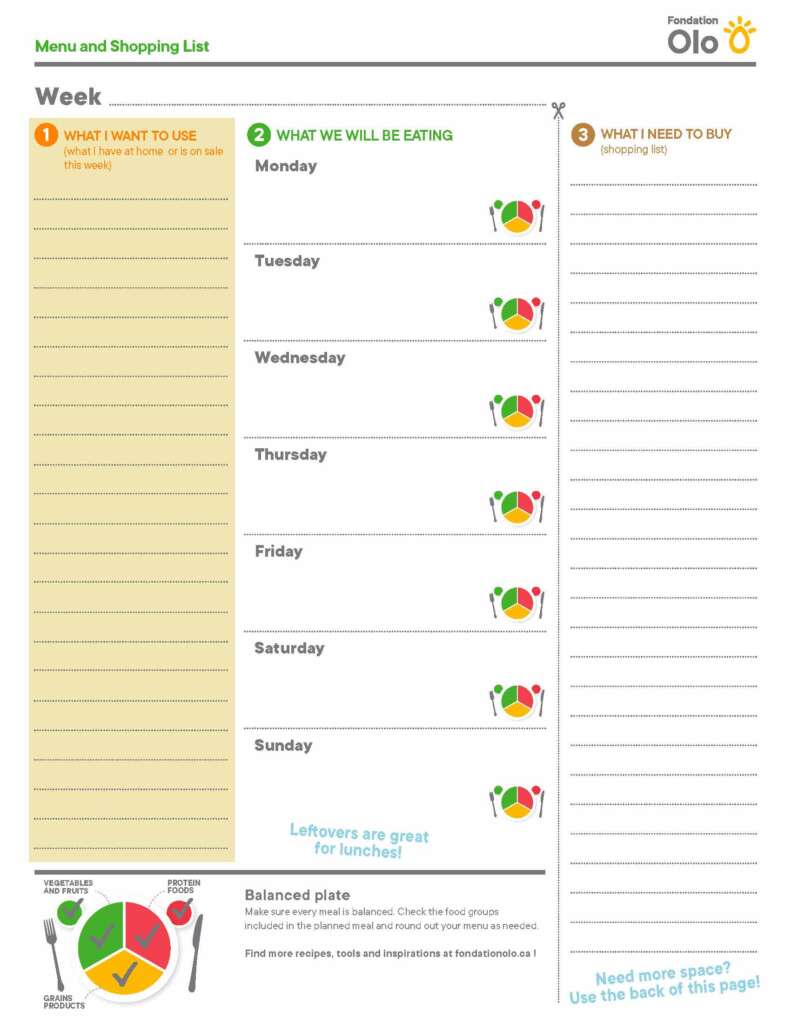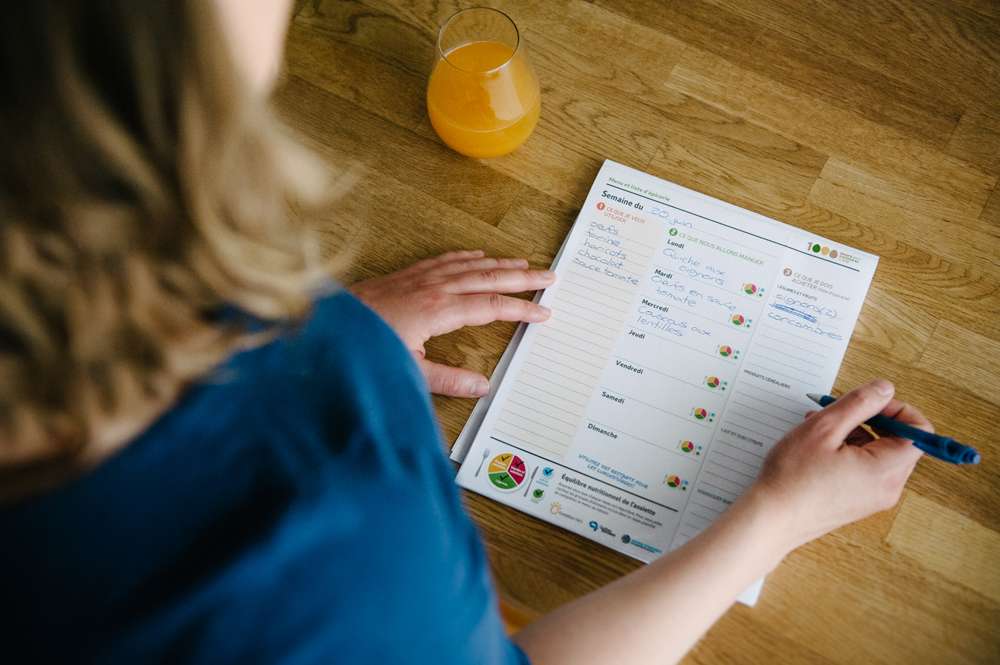Plan meals to make life easier
During the week, the end of the day is often a race against the clock: come home with the (hungry) kids, make meals, wash up, do the groceries… It’s a lot!
The classic question is always, “What’s for supper?” But there’s no need to panic! You can make your life much easier by just planning ahead.
Why plan your meals?
You may be thinking that planning meals ahead of time is a waste of time, but here are two good reasons to do it: it will save you time (you read that right!) and save you money.
1. Save time!
Here’s how meal planning saves you time:
- Less time doing groceries, since you already know exactly what you need to buy.
- No more extra trips and detours to the grocery store for last-minute purchases.
- Take shortcuts when it comes time to cook. You can skip some steps thanks to meal prep.
- Less stress and pressure around mealtimes when everyone is already hungry.
2. Save money!
Planning meals is also a great way to avoid wasting food and to stay on budget.
Unfortunately, a lot of food goes straight from the fridge to the garbage. To avoid wasting food, plan your meals around the foods you already have. Less waste = less spending!
When you plan ahead, you can choose your meals based on the weekly specials. This means lower grocery bills. Even better, you avoid buying from corner stores and restaurants, which are much more expensive.
What’s left in the fridge
Gather all the leftovers in the fridge and make a delicious meal out of them: omelette, pizza, stir-fry, etc. Cooking with “what’s left in the fridge” keeps food from going to waste!
How do I plan meals?
Our meal planner is a tool to help you plan your meals for the whole week in 3 easy steps.

1. What I want to use
Make a list of the foods you already have in the fridge, freezer and on the shelves. Then add anything that’s on sale that you’d like to add to your menu.
2. What we will be eating
Think about your menu for the week and choose products to make up complete meals. Buy some protein foods as well as grains, fruits and vegetables to make your meals complete. Remember to plan to use the food you already had in the fridge first.
3. What I need to buy
Make a list of the foods you need to buy and put the list in your wallet to make sure you don’t forget it. Now you’re ready to do the groceries!
Recommended reading: 20 tips to save on your grocery bill.
A few tips
- When you’re starting out, you don’t need to plan every meal for the whole week. Start out with just one meal, then two… Go at your own pace! You can also try planning just the suppers. If you do that, consider making double recipes to have leftovers for your lunches.
- While you’re planning, check your family’s schedule. Consider night shifts, night classes and outings. On busy days, plan meals that don’t need a lot of preperation. If you need a bit of inspiration, check out our recipes!
It’s true that meal planning means being a bit more organized. But it’s a good habit you’ll get used to quickly. And soon, you won’t remember how you managed without it. Meal planning means less stress and more time with your loved ones.
Writing : Fondation Olo
Scientific review : Mylène Duplessis Brochu, nutritionist, Dt.P., M.Sc.

